- Home
- Robert Rankin
Snuff Fiction Page 2
Snuff Fiction Read online
Page 2
It was all very interesting and Mr Vaux evidently knew his subject well, judging by the graphic descriptions he gave of each particular torment. And it certainly served as an object lesson to any of us who harboured the ambition to become an assassin when we grew up: that we should plan our getaways with the utmost care!
The lesson was almost over by the time the boy Doveston entered the classroom, which was a shame because he had missed all the best bits. I know he would have enjoyed the part when Mr Vaux held his finger over a candle flame to demonstrate just how much pain a man can take before he screams really loud. I know I did. And while most of the soppy girls were quietly weeping and that softy Paul Mason had fainted, the boy Doveston would certainly have been the first to put up his hand when Mr Vaux asked who amongst us would like to sniff the burned flesh of his finger.
But as it was he missed it and as it was he entered without knocking first.
Mr Vaux swung around from the blackboard and pointed his charred digit at the boy. ‘Out!’ cried he, in outrage and in such a raised voice that Paul, awaking from his faint, was caused to faint once more.
The boy went out again and knocked.
‘Come,’ called Mr Vaux. The boy came in.
Our teacher laid his chalk aside and sought instead his slipper. He looked the boy both up and down and shook his head in sadness. And then he glanced up at the classroom clock and made tut-tutting sounds.
‘Two-twenty-three,’ said Mr Vaux. ‘You have excelled yourself this time, Doveston.’
The boy scuffed his unpolished shoes on the floor. ‘I’m truly sorry, sir,’ he said.
‘A laudable sentiment,’ said Mr Vaux. ‘And one which makes the violence I am about to visit upon your backside with my slipper purely symbolic. Kindly bend over the desk.’
‘Ah,’ said the boy. ‘I think not.’
‘Think not?’ Mr Vaux’s moustachios bristled as only moustachios can. ‘Over the desk at once, my lad, and learn the errors of dissent.’
‘The headmistress says that you are not to beat me for being late, sir.’
‘Oh,’ said our teacher, making a dramatic flourish with his slipper. ‘You have received a dispensation from on high. Possibly you are to atone for your sins in some other fashion. Or is it a case of venia necessitati datur?’
It was always a pleasure to hear Mr Vaux spout Latin. But as the subject was not taught in our school, we never had the foggiest idea what he was on about.
‘It is the case, sir, that I had to go to the police station.’
‘Oh joyous day,’ said Mr Vaux. ‘And so at last you are to be taken off to Approved School and I shall be spared the onerous and thankless task of teaching you. Hasten then to clear your desk and take your leave at the hurry-up.’
‘No, sir. I had to go to the police station because I witnessed a crime and helped to bring the criminal to justice.’
‘Doveston,’ said Mr Vaux, ‘do you know the penalty for lying in this school?’
Doveston munched thoughtfully upon his chewing gum. ‘I do, sir, yes,’ he said at length. ‘I do, sir, yes indeed.’
‘That is good,’ said Mr Vaux. ‘For although the punishment falls somewhat short of that inflicted upon Damiens, it has always in the past proved itself to be a powerful deterrent in the fight against mendacity and falsehood.’
‘Yes indeed,’ said Doveston once more.
‘So, with that firmly understood, perhaps you would care to share with us the details of your day?’
‘I would, sir. Yes please.’
‘Then do so.’ Mr Vaux settled himself down at his desk, stubbed out his cigarette and put his hands behind his Brylcreemed head. ‘The floor is yours,’ he said, ‘so say your piece.
‘Thank you, sir, I will.’ The boy Doveston thrust his hands once more into the pockets of his shorts and sniffed away a runner from his nose. ‘You see, sir,’ he began, ‘I left my house early, because I had to do an errand for my mum and I didn’t want to be late for school. My mum had asked me to go to old Mr Hartnell’s corner shop and buy her a packet of Duchess. Those are the new perfumed cigarettes from Carberry’s of Holborn. The tobacco is a light mellow Virginia, flavoured with bergamot and sandalwood. And although I do not condemn the use of essential oils in the preparation of snuff, it is a different matter with cigarettes, tending to adulterate the taste of the tobacco rather than enhance it. I feel that with Duchess, as with Lady Grey’s and Her Favourites, the application has been over-liberal. In my opinion, the perfuming of cigarettes is little more than an exotic blandishment, designed to lure gullible female smokers away from their regular brands.’
‘An argument most eloquently put,’ said Mr Vaux, his eyebrows raised. ‘I had no idea that you were au fait with the subtleties of the tobacco-blender’s craft.’
‘Oh yes, sir. When I grow up I intend to go into the trade. I have certain ideas that I think will revolutionize it.’
‘Do you now? Well, I’m sure that they’re all very interesting. But please confine yourself to the matter in hand.’
‘Yes, sir. So I went into old Mr Hartnell’s to purchase the cigarettes. Which, I might add, cost one and fourpence for ten, an outrageous sum. And there was a chap waiting to be served before me. He was dressed in the garb of a road-sweeper, but I chanced to notice that his shoes were highly polished. My suspicions were further aroused when he asked to buy a packet of cigarettes.’
‘Why?’ asked Mr Vaux.
‘Because he asked for a packet of Carroll’s Golden Glories, a tipped cigarette smoked almost exclusively by the gentry. No road-sweeper would ever smoke a tipped cigarette, let alone a Carroll’s. And then, sir, if this wasn’t enough, he paid with a five-pound note.’
‘Incredible,’ said Mr Vaux.
‘Incredible,’ we all agreed.
And it was incredible. And as we listened and the boy Doveston spoke, the tale that unfolded was more than incredible.
It was exciting too.
He had followed the man from old Mr Hartnell’s corner shop, down Moby Dick Terrace, along Abaddon Street to an empty house on the edge of the bomb site at the Half Acre. We knew all the empty houses in Brentford, but we’d never been able to get into this one because it was so well boarded up.
The man had entered the house through a hidden doorway at the back and the boy had followed him in.
Once inside, the boy had found himself in what looked to be a laboratory, with strange specimens suspended in tall preserving jars and much complicated apparatus of the electrical persuasion. He crouched down behind a work bench and watched as the man made a call on a tiny wireless set, speaking in a language that seemed to consist of squeaks and grunts. His call completed, he swung around, pistol in hand and demanded that Doveston show himself.
Grudgingly the boy complied.
‘So,’ said the man, ‘you are an enterprising youth.’
‘I’m lost, sir,’ said the Doveston. ‘Could you tell me the way to the railway station?’
‘You are indeed lost,’ said the man, in a voice that the boy described as chilling. ‘But now I have found you.’
‘Goodbye,’ said the Doveston, turning to leave.
‘The door is locked,’ said the man. And it was.
‘Please don’t kill me,’ the Doveston said.
The man smiled and put away his pistol. ‘I have no wish to kill you,’ he replied. ‘On the contrary, when I have finished with you, you will be anything but dead. You will be more alive than you can possibly imagine.’
‘I would rather just leave, if that’s all right with you.’
‘No,’ said the man, ‘it’s not. Now listen carefully while I explain the situation to you and then, when I’ve finished, you can make up your own mind about what you do.’
‘Do you mind if I smoke while I listen?’
‘No, certainly, have one of mine.
The boy Doveston grinned at Mr Vaux. ‘I was hoping he’d say that,’ he said, ‘because I’d never tried a Carroll’
s before. I must say, however, that it was something of a let-down. The quality of the tobacco was good, but the watermarked paper has a slightly glossy feel and burns unevenly. I was impressed by the charcoal filter, but there is definite room for improvement there. Possibly the addition of a cork tip such as with Craven A. I—’
But this particular discourse was cut short by the sound of Mr Vaux’s slipper striking his desk. ‘Get on with it!’ cried Mr Vaux.
The boy got on with it.
‘The man told me that he was part of an élite group of scientists working for the government. They had created an electronic brain that was capable of predicting future developments in technology. It couldn’t actually tell the future, because it couldn’t access all the information required to do that. It worked on a mathematical principle. If you are asked to work out what two and two make, you will say: four. Which means that you have predicted the future. You have foretold what will happen when you add two and two. The electronic brain works something like that. He said that it had worked out that by the end of the century we would be almost completely reliant on machines like itself, computers, to run society. They would be linked into almost everything. Food production, military defence, telecommunications, transportation, hospitals, banking, whatever.
‘But, he said, there would be an unavoidable design fault in the programming of these systems. Something to do with the little date-counters inside them. And this would mean that when they reached the year two thousand, many of them would break down. Society would then collapse, he said.’
Mr Vaux stroked at his moustachios. And if I’d had some to stroke, I’d have surely done the same. It was fascinating stuff. Radical stuff. Incredible stuff. And, curiously, it also seemed as if it were familiar stuff I felt certain that I’d heard all this before. In fact, the more I thought about it, the more absolutely certain I felt that I’d heard all this before. Indeed that I’d read all this before.
In a comic book that the Doveston had recently lent to me.
I don’t think Mr Vaux had read it though. I think he would have stopped the tale-telling sooner if he had. I think he quite enjoyed the bit when the boy refused to submit to the brain-implant operation that would have linked him to the electronic machine and the man pulled the lever that dropped him through the trapdoor into the cage beneath. It was here, of course, that the Doveston met the princess with the silver eyes, who had been kidnapped for use in some similar experiment. I don’t know whether you can actually pick a padlock with a matchstick and whether there really is a maze of subterranean caverns beneath Brentford inhabited by dwarves with tattooed ears. I remain uncertain about the amount of firepower the Brentford constabulary were able to call upon when they surrounded the house. And I’m certain we would have heard the explosion when the man pressed the self-destruct button rather than be taken alive.
But it was a thrilling story and I do feel that it was really decent of Mr Vaux to let the Doveston finish.
Before he bent him over the desk.
Although we were never taught German at the Grange, we all knew the meaning of the word Schadenfreude. And we all enjoyed the beating. It was a suitably epic beating and at the end of it Mr Vaux had four of the injury monitors convey the unconscious Doveston to the school nurse to have his wounds dressed and the smelling bottle applied to his nostrils.
All in all it was a memorable afternoon and I include it here as I feel it offers the reader an insight into just what sort of a boy the Doveston was.
Imaginative. And daring.
At home-time we helped him out through the school gates. We were all for carrying him shoulder high, but his bottom, it seemed, was too tender. However, he was a hero, there was no mistake about that, and so we patted him gently upon what areas of his body remained uninjured and called him a jolly good fellow.
As we left the school our attention was drawn to a large black and shiny motor car, parked in the otherwise deserted street. On the bonnet of this leaned a man in a chauffeur’s uniform and cap. At our rowdy approach he stepped forward. Not, however, to protect the car, but to hand the Doveston a bag of sweets. We looked on in silence as the chauffeur returned to the car, climbed in and drove away at speed.
I have a lasting impression of that moment. Of the car turning the corner past old Mr Hartnell’s shop. And of the passenger in the back seat, smiling and waving.
The passenger was a beautiful young woman.
A beautiful young woman with astounding silver eyes.
3
‘Sir, will you be good enough to tell your friend that my snuff box isn’t an oyster.’
Beau Brummell (1778—1840)
Uncle Jon Peru Joans was no uncle of mine. And neither was he one of the Doveston’s. The boy had adopted him.
He had adopted various adults in and around the borough of Brentford and visited each on a regular basis.
There was an ancient called Old Pete, whose allotment patch he helped to tend. A tramp known as Two Coats, with whom he went on foraging expeditions to Gunnersbury Park. The lady librarian, who was apparently teaching him Tantric sexual techniques. And there was Uncle Jon Peru Joans.
The boy’s choice of adults had been scrupulous. Only those possessed of useful knowledge qualified. Old Pete was reckoned by most to be the man in the district when it came to the growing of fruit and veg. Two Coats was the man when it came to what we now call ‘survivalism’. The lady librarian was definitely the woman in most respects. And then there was Uncle Jon Peru Joans.
‘What exactly does he do?’ I asked the Doveston, as together we shuffled over the cobbles of the tree-lined drive that led to the historic Butts Estate.
The boy took to scratching his left armpit. There was currently a plague of pit weevil in the school and we were all most grievously afflicted.
‘Come on,’ I said, ‘tell us.’
‘He doesn’t do much now,’ said the Doveston. ‘He is something of a recluse. But he served with the Royal Engineers and later the SAS. He knows all there is to know about dynamite.’
I kicked a bottle top into a drain. ‘So it’s blowing things up again, is it?’ I asked.
‘There’s nothing wrong in blowing things up. It’s a healthy boyish pursuit.’
‘That’s not what Vicar Berry says.
‘Vicar Berry is an old hypocrite,’ said the Doveston, worrying now at his right armpit. ‘He was an army chaplain and saw plenty of blowings-up. He merely wishes to deny the young the pleasures he himself enjoyed. You will find that’s a common thing amongst adults.’
I couldn’t deny this was true.
‘Anyway,’ said the Doveston, focusing attention on his groin, where an infestation of Y-front worm was gnawing at his nadgers. ‘Uncle Jon Peru Joans doesn’t only know all about dynamite. He knows all about orchids and hydro-dendrology.’
‘Hydro-den-whatery?’
‘Hydro-dendrology. It is the science of growing trees in water.’ I too gave my groin a thoughtful but much needed scratch. ‘This is his house,’ said the boy. And I looked up to see it.
The houses of the Butts Estate were of the Georgian ilk. Mellow pinky-bricked and proud-proportioned. The gardens were well tended and the folk who lived here were grand. A professor on the corner there and, deep amongst the trees, the Seamen’s Mission. An old sea captain kept the place, but none of us had seen him. There was peace and quiet here and there was history.
We never got much in the way of local history at school. But we knew all the major stuff anyway. It had been passed down to us by our parents. ‘That’s where Julius Caesar crossed the Thames.’ ‘That’s where King Balin fell during the famous Battle of Brentford.’ ‘That is the site of the coaching inn where Pocahontas stayed.’ And, most interestingly of all, ‘That is the house where P. P. Penrose was born.’
Prior to Mr Doveston, P. P. Penrose was undoubtedly Brentford’s most famous son: author of the best-selling books of the twentieth century, the now legendary Lazlo Woodbine novels.
> Throughout his life it was popularly believed that he had been born on the Lower East Side of New York. He affected a Brooklyn accent and always wore a fedora and trench coat. It was only after his tragic early death (in a freak accident involving handcuffs and a vacuum cleaner hose) that the truth finally came out (along with much of his lower bowel) — he had been born plain Peter Penrose in a house on Brentford’s Butts Estate. He had never been to New York in his life.
They never put a blue plaque up, but we all knew which house it was. The one with the blinds always drawn. In the summer, coachloads of American tourists would arrive to peer at those blinds. And our friend Billy, who knew more than was healthy for one of his age, would take his mum s vacuum cleaner along. The Americans would pay Billy to let them pose with it.
But I have nothing new to add on the subject of Penrose. And can do no more than recommend to the reader who wishes to delve further into the man, his work and his domestic habits, that they sample Sir John Rimmer’s excellent biography: Some Called Him Laz: The man who was Woodbine.
Or the article on auto-erotic asphyxiation that was published in the last-ever issue of Gagging for It! magazine, December 1999.
‘I’m gagging for a drink,’ I said. ‘Do you think that Uncle Jon Peru has lemonade?’
‘He only drinks filtered water.’ The boy Doveston reached out for the big brass knocker. ‘Now remember what I told you to say,’ he said in a serious voice.
‘What was it you told me to say?’ I asked, as I hadn’t been listening at the time.
‘That you are my brother Edwin and you share my interest in plants.’
‘But you don’t have a brother called Edwin.’
The Doveston shook his scrofulous head. ‘Do you want to see the monsters or not?’

 The Japanese Devil Fish Girl and Other Unnatural Attractions
The Japanese Devil Fish Girl and Other Unnatural Attractions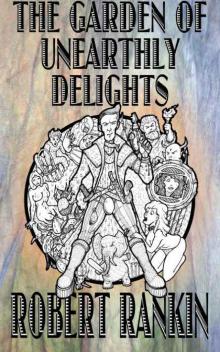 The Garden of Unearthly Delights
The Garden of Unearthly Delights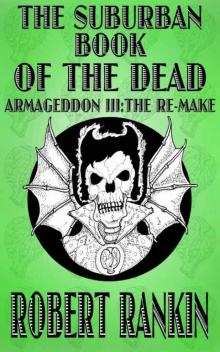 The Suburban Book of the Dead: Armageddon III: The Remake
The Suburban Book of the Dead: Armageddon III: The Remake Armageddon_The Musical (Armageddon Trilogy Book 1)
Armageddon_The Musical (Armageddon Trilogy Book 1)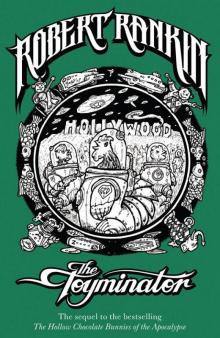 The Toyminator
The Toyminator The Hollow Chocolate Bunnies of the Apocalypse
The Hollow Chocolate Bunnies of the Apocalypse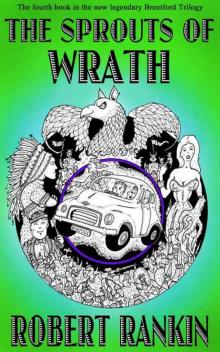 The Sprouts of Wrath
The Sprouts of Wrath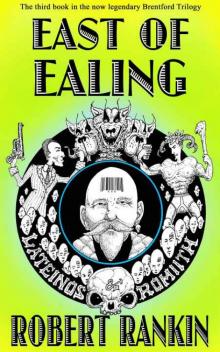 East of Ealing
East of Ealing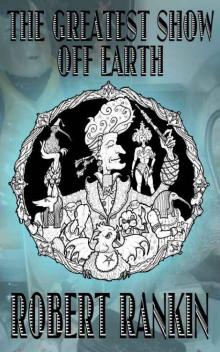 The Greatest Show Off Earth
The Greatest Show Off Earth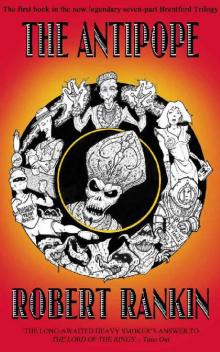 The Antipope
The Antipope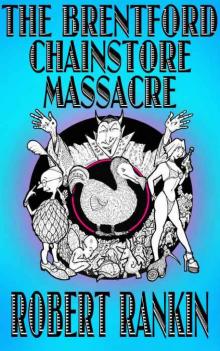 The Brentford Chainstore Massacre
The Brentford Chainstore Massacre They Came and Ate Us_The B-Movie (Armageddon Trilogy 2)
They Came and Ate Us_The B-Movie (Armageddon Trilogy 2)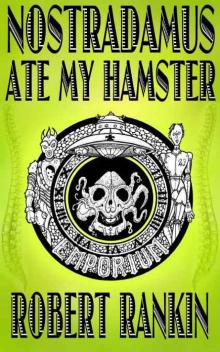 Nostradamus Ate My Hamster
Nostradamus Ate My Hamster Sex and Drugs and Sausage Rolls
Sex and Drugs and Sausage Rolls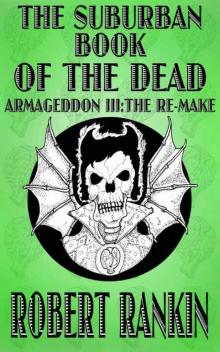 The Suburban Book of the Dead_The Remake (Armageddon Trilogy 3)
The Suburban Book of the Dead_The Remake (Armageddon Trilogy 3)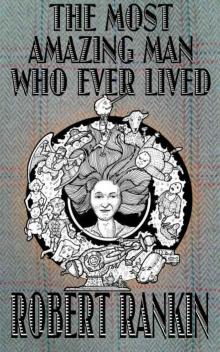 The Most Amazing Man Who Ever Lived
The Most Amazing Man Who Ever Lived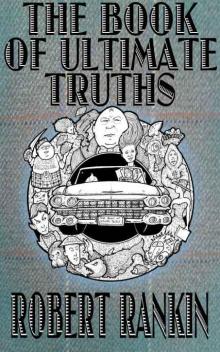 The Book of Ultimate Truths
The Book of Ultimate Truths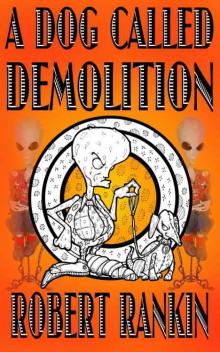 A Dog Called Demolition
A Dog Called Demolition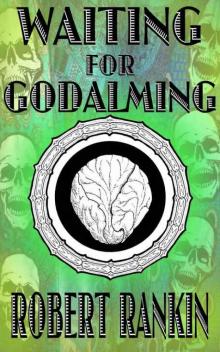 Waiting for Godalming
Waiting for Godalming The Dance of the Voodoo Handbag
The Dance of the Voodoo Handbag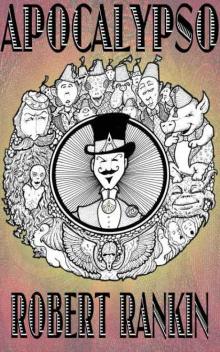 Apocalypso
Apocalypso They Came and Ate Us: Armageddon II: The B-Movie
They Came and Ate Us: Armageddon II: The B-Movie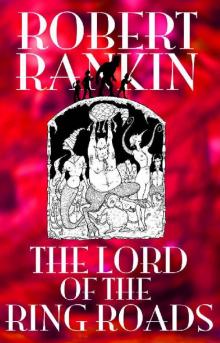 The Lord of the Ring Roads
The Lord of the Ring Roads Retromancer
Retromancer The Fandom of the Operator
The Fandom of the Operator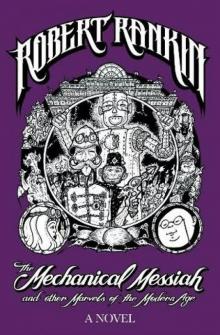 The Mechanical Messiah and Other Marvels of the Modern Age
The Mechanical Messiah and Other Marvels of the Modern Age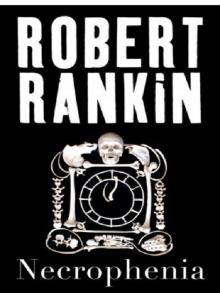 Necrophenia
Necrophenia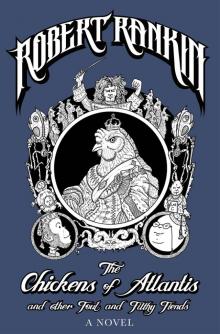 The Chickens of Atlantis and Other Foul and Filthy Fiends
The Chickens of Atlantis and Other Foul and Filthy Fiends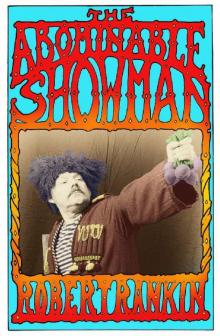 The Abominable Showman
The Abominable Showman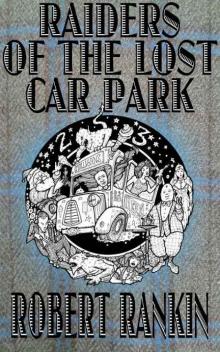 Raiders of the Lost Carpark
Raiders of the Lost Carpark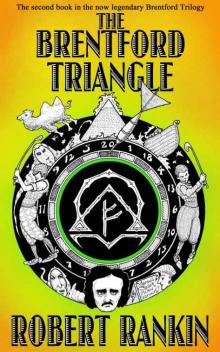 The Brentford Triangle
The Brentford Triangle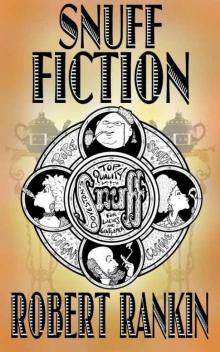 Snuff Fiction
Snuff Fiction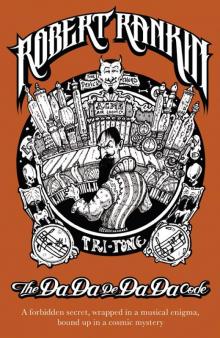 The Da-Da-De-Da-Da Code
The Da-Da-De-Da-Da Code Web Site Story
Web Site Story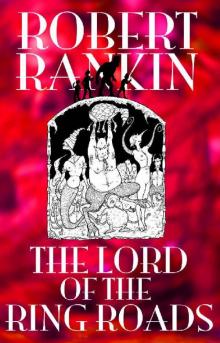 The Lord of the Ring Roads (The Final Brentford Trilogy Book 1)
The Lord of the Ring Roads (The Final Brentford Trilogy Book 1)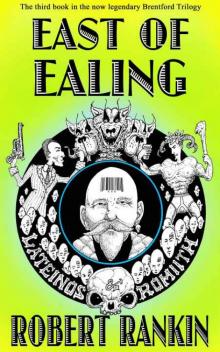 East of Ealing (The Brentford Trilogy Book 3)
East of Ealing (The Brentford Trilogy Book 3)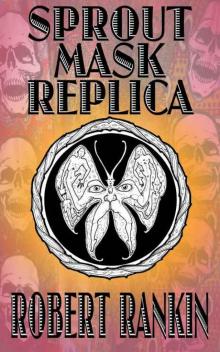 Sprout Mask Replica (Completely Barking Mad Trilogy Book 1)
Sprout Mask Replica (Completely Barking Mad Trilogy Book 1)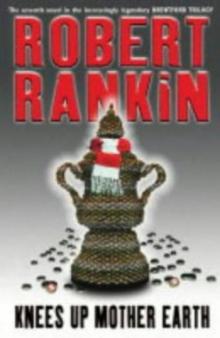 Knees Up Mother Earth bs-7
Knees Up Mother Earth bs-7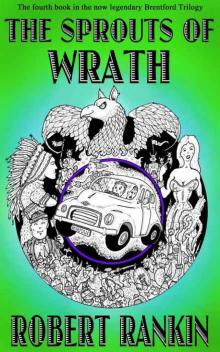 The Sprouts of Wrath (The Brentford Trilogy Book 4)
The Sprouts of Wrath (The Brentford Trilogy Book 4)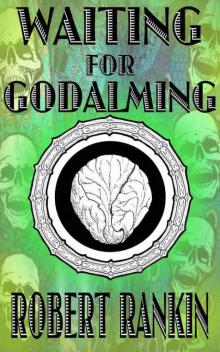 Waiting for Godalming (Completely Barking Mad Trilogy Book 3)
Waiting for Godalming (Completely Barking Mad Trilogy Book 3)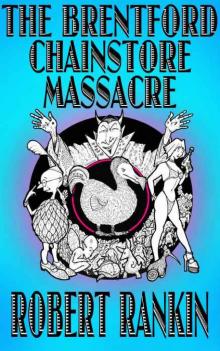 The Brentford Chainstore Massacre (The Brentford Trilogy Book 5)
The Brentford Chainstore Massacre (The Brentford Trilogy Book 5) Sex and Drugs and Sausage Rolls (The Brentford Trilogy Book 6)
Sex and Drugs and Sausage Rolls (The Brentford Trilogy Book 6) The Dance of the Voodoo Handbag (Completely Barking Mad Trilogy Book 2)
The Dance of the Voodoo Handbag (Completely Barking Mad Trilogy Book 2)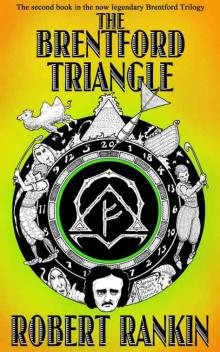 The Brentford Triangle (The Brentford Trilogy Book 2)
The Brentford Triangle (The Brentford Trilogy Book 2)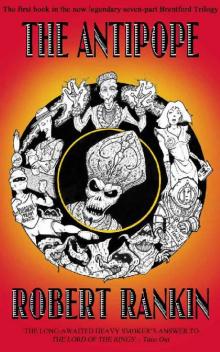 The Antipope (The Brentford Trilogy Book 1)
The Antipope (The Brentford Trilogy Book 1)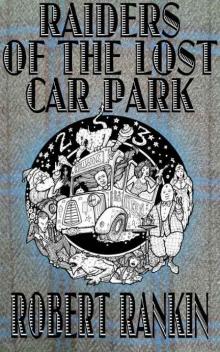 Raiders of the Lost Car Park (The Cornelius Murphy Trilogy Book 2)
Raiders of the Lost Car Park (The Cornelius Murphy Trilogy Book 2) They Came and Ate Us - Armageddon II_The B-Movie (Armageddon Trilogy Book 2)
They Came and Ate Us - Armageddon II_The B-Movie (Armageddon Trilogy Book 2)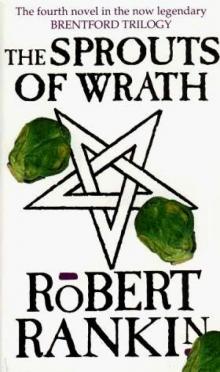 The Sprouts of Wrath bs-4
The Sprouts of Wrath bs-4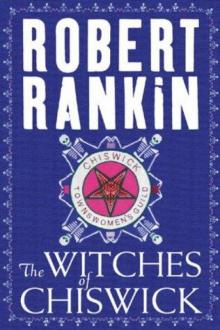 The Witches of Chiswick
The Witches of Chiswick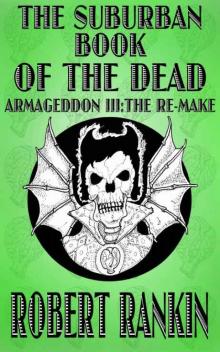 The Suburban Book of the Dead - Armageddon III: The Remake (Armageddon Trilogy 3)
The Suburban Book of the Dead - Armageddon III: The Remake (Armageddon Trilogy 3)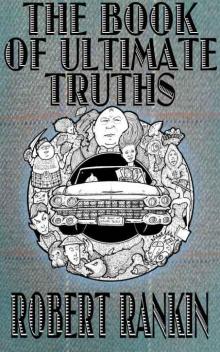 The Book of Ultimate Truths (The Cornelius Murphy Trilogy 1)
The Book of Ultimate Truths (The Cornelius Murphy Trilogy 1) Armageddon: The Musical (Armageddon Trilogy)
Armageddon: The Musical (Armageddon Trilogy)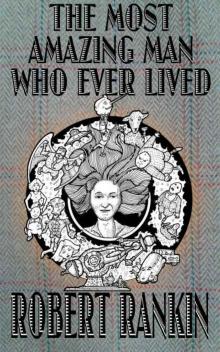 The Most Amazing Man Who Ever Lived (The Cornelius Murphy Trilogy Book 3)
The Most Amazing Man Who Ever Lived (The Cornelius Murphy Trilogy Book 3)